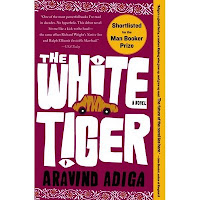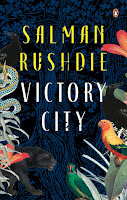
Disgrace
By J.M. Coetzee
I am a sucker for Booker prizewinners. At least most of them. So I pick up the 1999 winner Disgrace, by the South African (now Australian, I think) writer J.M. Coetzee. And turns out he is also a Nobel Prize winner!
The title of the book describes the state David Lurie is in. 52 years old, twice divorced, Lurie teaches poetry at a Capetown University. In an impulsive Lolita moment, he starts an affair with a young student. He loses his job in the process and thus starts his descent into disgrace. David retires to his daughter Lucy’s home in the country hoping to clear his mind and see what can come out of a vague dream of writing a book on Byron.
Rural life in South Africa for a white man and his single daughter is not idyllic. That fact is brought home rather forcefully when strangers, who later turn out to be relatives of Lucy’s African neighbour and helper, render David and Lucy helpless in a rather violent attack against them. The difference in the way the older man and the younger woman react to the attack is telling. David is angry and wants his daughter to give up her land and go away, maybe away from South Africa itself. His daughter however decides to stay.
The burden of history turns out to be hard to bear for white South Africa. In the countryside they are forced to barricade themselves against a hostile world, and still end up with the possibility of a bullet in the back. Or they could choose to leave. Lucy’s generation is learning to start all over again, learning to adapt, to forge new relationships, start with nothing again. David cannot do the same, or won’t do the same and he is left to rely on his fledgling Byronic opera and his new-found love for stray animals (another species left with nothing) as substitutes for the strength to carry on.
It is a bleak novel, yet there is a sense of re-building as if from a wasteland. Just as Lucy’s child begins its life in her womb, a child born of violence and helplessness, David and Lucy have to begin life again in deepest Africa. All the dilemnasof white South Africa are brought to life in this short and sharp novel from a writer with an obvious talent for a layered tale. Coetzee is a new discovery, one I will explore more of.







